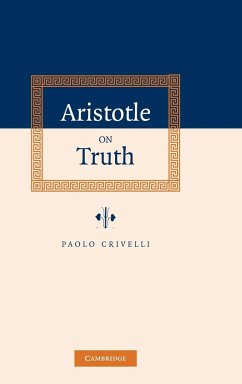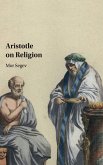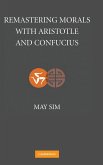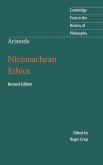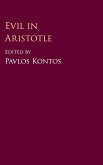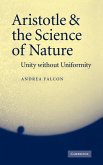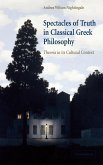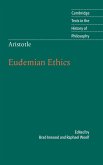Short description/annotation
Paolo Crivelli discusses all the main aspects of Aristotle's views on truth and falsehood.
Main description
Aristotle's theory of truth, which has been the most influential account of the concept of truth from Antiquity onwards, spans several areas of philosophy: philosophy of language, logic, ontology, and epistemology. In this book, the first dedicated to this topic, Paolo Crivelli discusses all the main aspects of Aristotle's views on truth and falsehood. He analyses in detail the main relevant passages, addresses some well-known problems of Aristotelian semantics, and assesses Aristotle's theory from the point of view of modern analytic philosophy. In the process he discusses most of the literature on Aristotle's semantic theory to have appeared in the last two centuries. His book vindicates and clarifies the often repeated claim that Aristotle's is a correspondence theory of truth. It will be of interest to a wide range of readers working in both ancient philosophy and modern philosophy of language.
Table of contents:
Introduction; Part I. Bearers of the Truth of Falsehood: 1. States of affairs, thoughts, and sentences; 2. Truth conditions for predicative assertions; 3. Truth conditions for existential assertions; Part II. 'Empty' Terms: 4. Truth as correspondence; 5. 'Vacuous' terms and 'empty' terms; Part III. Truth and Time: 6. Truth and change; 7. Truth and determinism in de Interpretatione 9; Appendices.
Paolo Crivelli discusses all the main aspects of Aristotle's views on truth and falsehood.
Main description
Aristotle's theory of truth, which has been the most influential account of the concept of truth from Antiquity onwards, spans several areas of philosophy: philosophy of language, logic, ontology, and epistemology. In this book, the first dedicated to this topic, Paolo Crivelli discusses all the main aspects of Aristotle's views on truth and falsehood. He analyses in detail the main relevant passages, addresses some well-known problems of Aristotelian semantics, and assesses Aristotle's theory from the point of view of modern analytic philosophy. In the process he discusses most of the literature on Aristotle's semantic theory to have appeared in the last two centuries. His book vindicates and clarifies the often repeated claim that Aristotle's is a correspondence theory of truth. It will be of interest to a wide range of readers working in both ancient philosophy and modern philosophy of language.
Table of contents:
Introduction; Part I. Bearers of the Truth of Falsehood: 1. States of affairs, thoughts, and sentences; 2. Truth conditions for predicative assertions; 3. Truth conditions for existential assertions; Part II. 'Empty' Terms: 4. Truth as correspondence; 5. 'Vacuous' terms and 'empty' terms; Part III. Truth and Time: 6. Truth and change; 7. Truth and determinism in de Interpretatione 9; Appendices.

